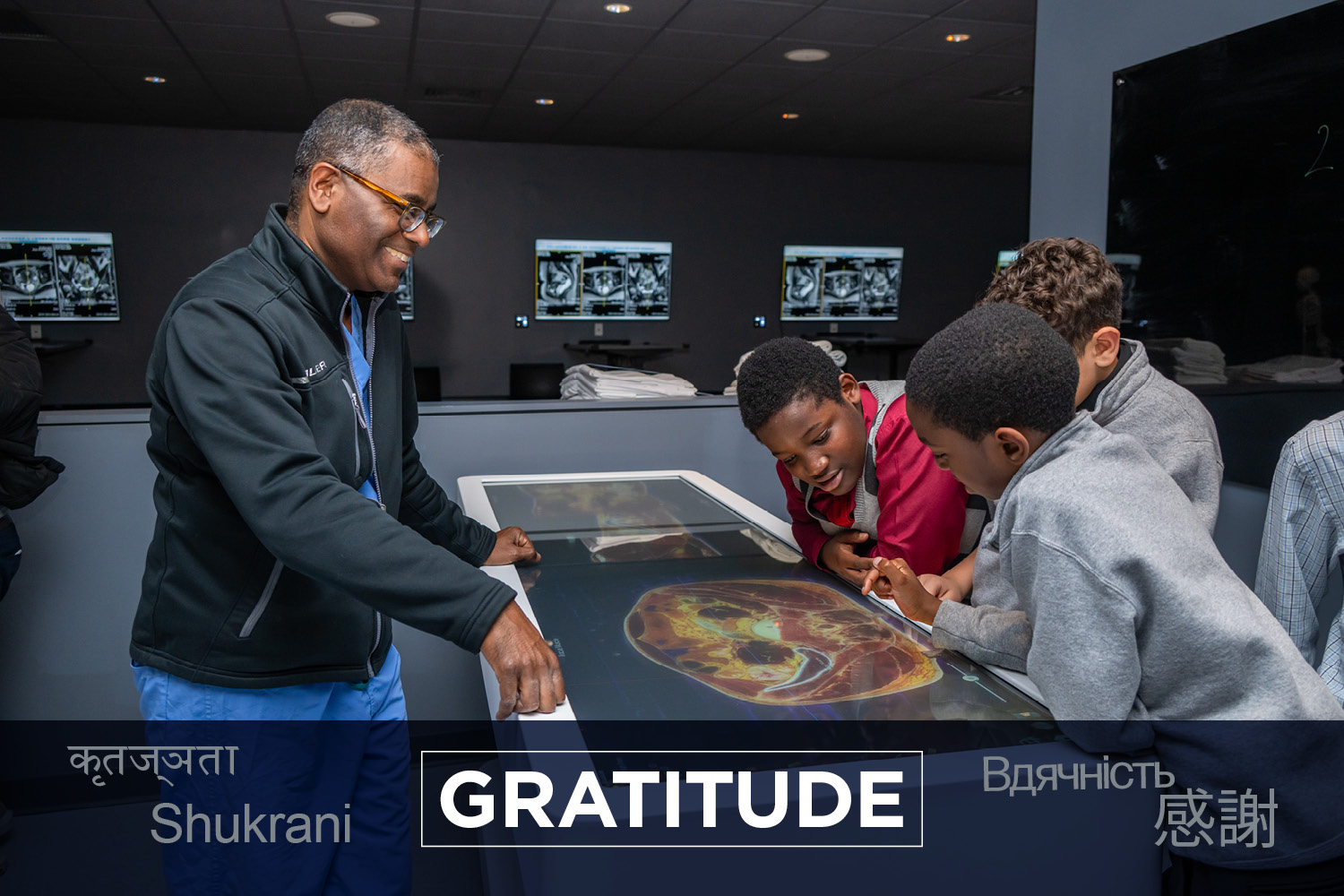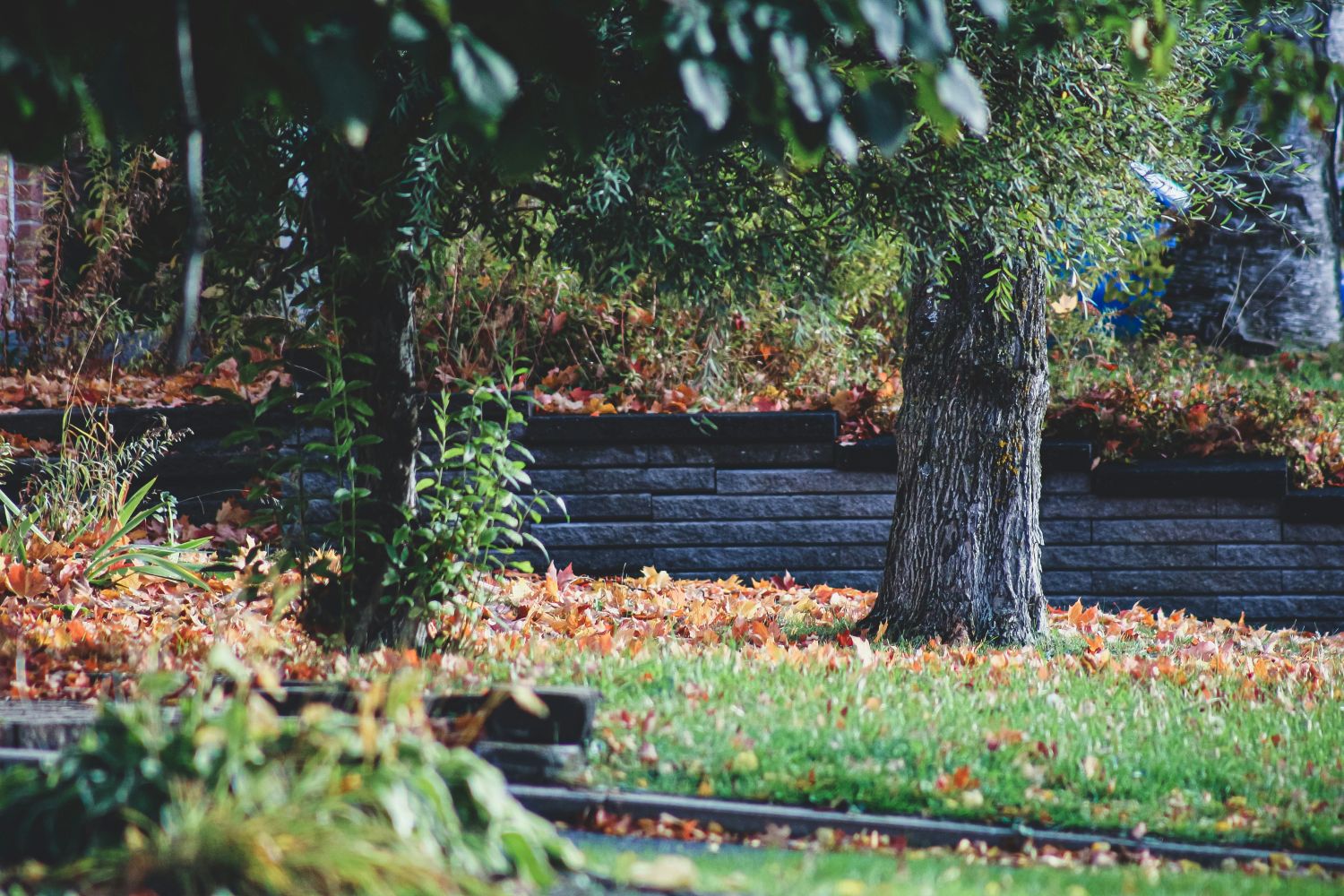Dean of the College of Liberal Arts and Sciences Juli Wade was busy studying toward a psychology degree, working in a dining hall, and playing flute in the Cornell Big Red marching band when a clarinetist friend told her about an opening in the animal behavior lab where she worked.
So Wade, an animal lover who claims that her beloved childhood dog, Sam, could have won an ugly dog contest, quickly traded her hot and messy dining hall job for the chance to clean up zebra finch and quail poop, and get her hands regularly covered with angry mama-bird pecks as she counted ringdove eggs.
When the laboratory managers saw she was “a reasonably responsible person,” says Wade, they started giving her bigger jobs, like treating baby birds with hormones to determine long-term effects on their brains.
“I love the possibilities in a college as big and complex as CLAS.”
– CLAS Dean Juli Wade
“I just started listening to conversations, spending more time with the graduate students and asking what they were working on,” she says. “I got really excited about it, and they let me keep doing more.
“I still cleaned the cages, though,” she smirks.
Now, as the incoming dean of the largest college at UConn, Wade is taking a cue from her former self: She’s listening to conversations, spending time with people, and asking what would make their work even better.
“I love the possibilities in a college as big and complex as CLAS,” she says. “I want to build bridges across all of our disciplines to create new opportunities for education and scholarship.”
After Cornell, Wade went on to a psychology Ph.D. at the University of Texas at Austin, a postdoctoral fellowship at UCLA, and a faculty position at Michigan State University, where she studied how gene expression and exposure to hormones create changes in the nervous system, which in turn affects behavior in birds and lizards.
She then served as department chair of MSU’s Department of Psychology for seven years, where she particularly enjoyed hiring and mentoring junior faculty. Those interests grew into Wade becoming an associate provost for faculty and academic staff development.
“All along I loved doing the science, but my favorite part was working with students and postdocs and helping to launch their careers,” she says. “That interest transitioned to mentoring junior faculty when I was chair. Mentoring and supporting the careers of others has always been really interesting and rewarding to me.”
Most recently, Wade was a fellow of the American Council on Education, which trains higher education leaders, at the University of Pennsylvania. She says that leading a large, broad college like CLAS has been an aim of hers for several years.
“There are strengths in this College in a lot of diverse disciplines,” she notes. “The question is: How can we build on those strengths, fill some gaps between them, and create something innovative, new, and exciting?”
Wade intends to use the 2019-2020 academic year to embark on a College-wide strategic planning process, which will produce a shared vision for the College with input from faculty, staff, and students.
“We want to create terrific experiences for students both in and out of the classroom, build interdisciplinary scholarship, and enhance the diversity of our faculty,” she says. “We need to develop the details of that vision, and specific strategies and goals for achieving that vision, together as a College.”
Wade believes firmly that a 21st-century liberal arts education is invaluable because it provides a way for students to “learn to learn.” She intends to help students see the applicability of studying what they love in CLAS.
“We want to create terrific experiences for students both in and out of the classroom, build interdisciplinary scholarship, and enhance the diversity of our faculty.”
– CLAS Dean Juli Wade
“You learn to write, you learn critical thinking skills, you become more multiculturally aware. You get a knowledge base in a core discipline, or even two core disciplines, and add the skills to adapt wherever you go. Companies want to hire students from colleges like ours because they know how to learn, and will keep learning forever.”
Wade also plans to build on the College’s more than $40 million research profile by connecting faculty and students across departments and fields.
“There are some kinds of questions that can be better answered by building bridges across traditional disciplines,” she says. “People from different fields have different perspectives, are trained in different ways, and can help each other solve problems that have never been solved.”
Wade says that to do her job well, she will keep talking to people in all corners of the College throughout her tenure, and will shine a light on the students, faculty, and staff who quietly support the University’s mission–down to the very last laboratory animal cage-cleaner and egg-counter.
“I want to find the people in this College who are doing great work out of the spotlight,” Wade says. “We have so many of them, and they make this university tick.”
Five Questions with Juli Wade, New CLAS Dean
Q: What was the first thing you noticed about UConn?
Oh, that’s easy: it’s so hilly! Michigan is so flat. And there’s the absence of soybeans.
We have a wonderful house close to campus and a stream out back, where we can hear the frogs and the crickets. I love the outdoors, so it’s perfect for me.
Other than the landscape, I will say people are incredibly nice, helpful, smart and hardworking. It’s been completely positive. It’s fun. I enjoy coming to work every day because of the people.
Q: What do you get up to on the weekends?
I love football. I learned to love it when I was in the marching band at Cornell. Steve and I had season tickets at MSU and would go with another couple; we would make brunch and walk to the game. It was about the whole day, not just the football. There’s something about the strategy and the spirit that I love. And I like rooting for my team. I do like watching basketball too, and I imagine that will only increase here!
I also take a lot of walks on our property–we have 20 acres. I cook, do yoga, kayak. We play a lot of Scrabble at our house. We have two cats, and we play with them when they decide they want to spend time with us. So, quiet stuff, mostly. Except for the football.
Q: You studied science in college. What were your favorite non-science classes?
I took a creative writing class, a fiction class. It was one of many humanities classes that taught me to write well. I had always loved to write, and I even toyed with becoming a journalist.
The most rewarding class might have been my upper-division German literature class. Somehow, I placed into it on the Cornell foreign language entrance exam. It was a small class with only six of us, and we met in a beautiful old house on Cornell’s campus. I was in way over my head and so out of my element. But the professor was kind and I really learned how to read in another language. It was a great experience.
Q: What’s your favorite spot on campus?
I am, ah, very attached to the Dairy Bar. Steve and I enjoy a weekly walk there–it’s about two and a half miles from our house. So, when we get there, we deserve the ice cream.
Q: What is the most important thing you’re bringing to UConn?
I want the CLAS community to know that I’m accessible and I’m excited to be here. I’m here to serve. I’m here to help you be your best selves. I want to create a welcoming community where people want to take classes and want to go to work–an environment where great people will come and want to stay, and alumni will continue to engage.



